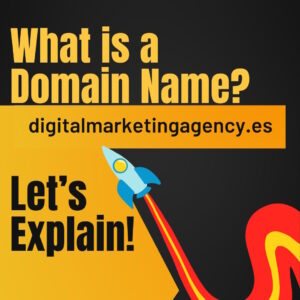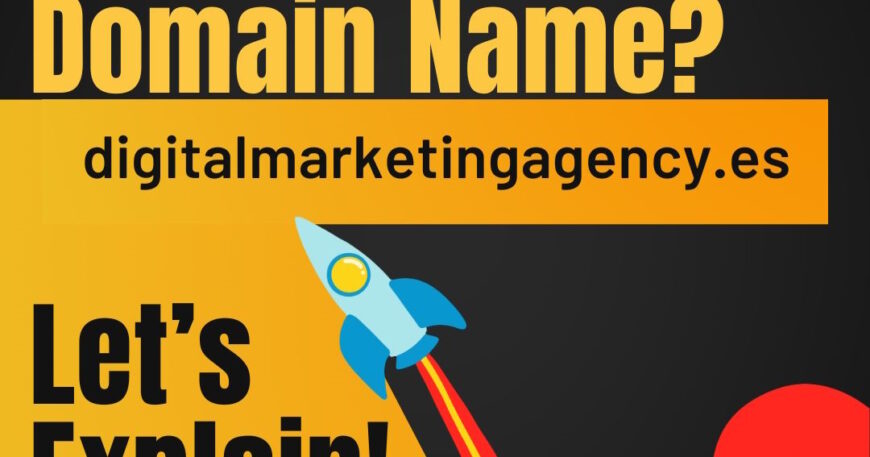Domain Names, Their Importance, and How to Acquire One
 So, Whats a domain name? – In the realm of the internet, a domain name is not just a technical shortcut. More than just a way to access a website without remembering a string of numbers, a domain name represents an entity’s online identity—be it a business, a personal blog, or any form of online presence. It is essential for establishing brand presence and enhancing accessibility. This article delves deeper into what a domain name is, its levels, and detailed guidance on how to acquire one effectively.
So, Whats a domain name? – In the realm of the internet, a domain name is not just a technical shortcut. More than just a way to access a website without remembering a string of numbers, a domain name represents an entity’s online identity—be it a business, a personal blog, or any form of online presence. It is essential for establishing brand presence and enhancing accessibility. This article delves deeper into what a domain name is, its levels, and detailed guidance on how to acquire one effectively.
Whats a Domain Name?
A domain name is a name and URL that represents your website’s presence on the internet. Unique and crucial, a domain name must be registered with a domain registrar to claim your part of the internet. It can be used for your website address, email address, or both. Most online endeavours start with securing a domain name, which becomes the cornerstone of your online identity.
Why You Need a Domain Name
Before any content goes live, a domain name is required. It connects with web host servers, allowing your website to be accessed by anyone around the world. For example, if you choose to host your site with providers like BlueHost, you will need to either provide an existing domain name or purchase one through their service, often at no extra cost with certain hosting packages.
If inspiration strikes, perhaps while you’re relaxing and ideas flow, it’s advisable to register your domain name immediately. The digital landscape is highly competitive, and securing a catchy, relevant domain name can be akin to finding “gold dust.”
Levels of Domain Names
Understanding the structure of domain names can clarify their functionality and importance:
- Top-Level Domain (TLD): This is the part after the dot, such as .com, .org, or .gov. TLDs help categorise the domain’s purpose or geographical area. For instance, .com is commonly used by commercial entities, while .co.uk denotes a UK-based. – If you want to rank world-wide .com is for you!
- Second-Level Domain: This is the customisable part of the domain name, located to the left of the dot. It often represents the business or individual associated with the domain and is crucial for brand recognition and recall. As an example Spain is (.ES), The United Kingdon is (.UK) & America is (.US).
Registering a Domain Name
The process of registering a domain name involves several steps:
- Choosing a Registrar: Use the ICANN website to locate a reputable domain name registrar. This is your first step towards claiming your online identity.
- Checking Availability: Use the search function provided by registrars to see if your desired domain is available. If not, registrars often suggest alternatives.
- Registration Details: Provide necessary personal details, which will be part of the WHOIS database. You can choose to make this information public or private, though privacy usually comes at a cost.
- Purchasing and Linking Your Domain: Once you finalise your domain name, purchase it for a defined term, typically starting at one year. Then, link your domain to your website via the tools provided by your registrar or web host.
The Cost of Domain Names
Domain registration can be free with certain hosting packages, but standalone purchases depend on factors like the choice of TLD, the popularity of the selected terms, and the registration period. Costs can vary significantly based on these factors, and understanding them helps in making informed decisions.
Free Domains and Their Limitations
Some web hosts offer free domain names as part of their hosting packages, which can be a great way to reduce initial costs. However, these are often tied to the hosting service, and transferring them later can incur fees. It’s important to consider the long-term implications of where and how you register your domain.
Can I Transfer My Domain?
Yes, domains can be transferred between registrars. This process allows you to maintain your online identity regardless of the service provider you choose. Transfers are generally straightforward but do require understanding specific steps provided by your current registrar.
Why Register a Domain Early?
Even if you haven’t started building your website, securing a domain early can protect your business idea or personal brand. As domains can be registered by anyone at any time, delaying this decision can result in losing the perfect domain name to someone else.
A registered domain name not only secures a piece of the internet for you but also enhances your project’s credibility and visibility. Whether you’re launching a commercial site, a personal blog, or any other form of online presence, a domain name is your first step towards establishing a recognisable and accessible online identity. It is an investment in your digital future, one that defines how users will identify and interact with your online presence.
Choose wisely, register promptly, and manage your domain thoughtfully to ensure it serves your goals effectively. – If you need any help with this process, please feel free to drop us an email or call any of the team at Digital Marketing Agency ES. I personally use GoDaddy to purchase all my domain names, theer cheap enough and the service is great!




